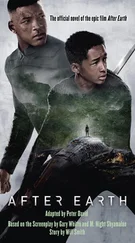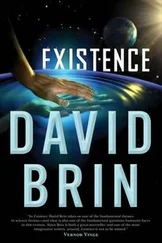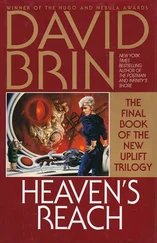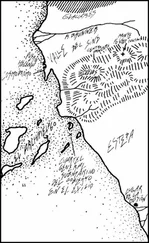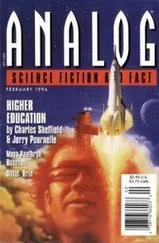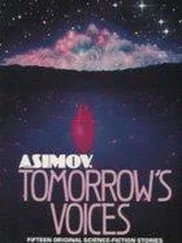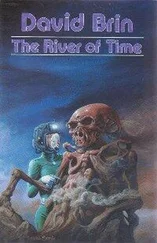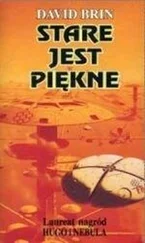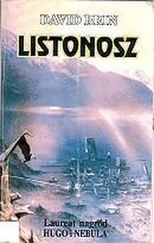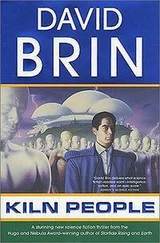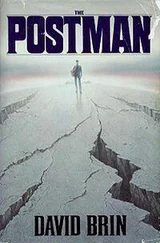But no. He shook his head as sea gulls dived and squawked, competing for the last of what had been a rich trove of Sea State garbage. Crat listened to their raucous chorus and decided he’d heard enough from stupid birds … even smarty-pants dolphins. The ocean wasn’t for him after all.
Nor Patagonia, especially now that volcanic dust threatened a reversal of the greenhouse effect, returning ice to the polar climes.
Nor even Hollywood.
Naw. Space is the place. That’s where the real elbow room is. Where there’ll be big rewards for guys like me. Guys willing to take chances.
First, of course, he’d had to finish taking big official types on tours of the seabed site where the company’s mystery lab had been. Apparently some nasty stuff had gone on down there, but nobody seemed to hold him responsible. In fact, one of the visiting investigators had called him “a steady fellow and a hard worker” and promised a good recommendation. If those tough jobs for miners on the moon ever opened up, that reference might come in handy.
I wonder what Remi and Roland would’ve thought. Me, a steady fellow… maybe even goin’ to melt rocks on the moon .
First he had to get there, though. And that meant working his way across the Pacific, helping haul the remnants of Sea State to reclamation yards now that ocean dumping wasn’t just illegal, but maybe suicidal as well. It would take months, but he’d save up for clothes and living expenses and a new plaque, and tapes to study so they wouldn’t think him a complete ignoramus when he filled out application forms…
“Hah! Listen to you!” He laughed at himself as he hopped nimbly over narrow gangways to the^gunwale where his work team was supposed to meet. “Becomin’ a reet intellectual, are ya?”
To show he wasn’t a complete mama’s boy, he spat over the side. Not that it hurt her nibs a bit to do so. She’d recycle it, like she would his soddy carcass when the time came, and good riddance.
A whistle blew, calling crew to stations. He grinned as the tug’s exec nodded to him. There was still plenty of time, but Crat wanted to be early. It was expected of him.
The others in his team shambled up, one by one and in pairs. He made a point of scowling at the last two, who arrived just before the final blow. “All right,” he told the gang. “We’re haulin’ hawsers here, not some girly-girl’s drawers. So if you want your pay, put your backs in, hear?”
They grunted, nodded, grimaced in a dozen different dialects and cultural modes. Crat thought them the scum of the Earth. Just like himself.
“Ready, then?” he cried as the bosun called to cast off lines. The men took up the heavy jute rope. “Okay, let’s show Momma what even scum can do. All together now… pull!”
It gets cold between the stars. Most of space is desert, dry and empty.
But there are, here and there, beads that glitter close to steady, gentle suns. And though these beads are born in fire and swim awash in death, they also shimmer with hope, with life.
Every now and then, as if such slender miracles weren’t enough, one of the little, spinning globes even awakens.
“ I AM… ” it declares, singing into the darkness , “ I AM, I AM, I AM! ”
To which the darkness has an answer, befitting any upstart.
“ SO WHAT? BIG DEAL, BIG DEAL, BIG DEAL… SO WHAT? ”
The latest little world-mind ponders this reply, considers it, and finally concludes , “ SO EVEN THIS IS ONLY A BEGINNING? ”
“ SMART CHILD, ” comes the only possible response . “ YOU FIGURE IT OUT. ”
Gaia spins on, silently contemplating what it means to be born into a sarcastic universe.
“ WE’LL SEE ABOUT THIS, ” she murmurs to herself, and like a striped kitten, purrs .
“ WE SHALL SEE. ”
This novel depicts one of many ways the world might be fifty years from now. It is only an extrapolation — what a physicist might call a gedankenexperiment — nothing more.
And yet, as I sit down to write this postscript, it occurs to me that we can learn something by looking in the opposite direction. For instance, exactly fifty years ago Europe was still at peace.
Oh, by August 1939 the writing was on the wall. Having already crushed several smaller neighbors, Adolf Hitler that month signed a fateful pact with Joseph Stalin, sealing the fate of Poland. China was already in flames. And yet, many still hoped that world statesmen would stop short of the edge. The future seemed to offer promise, as well as threat.
At the New York World’s Fair, for instance, you could tour the Westinghouse exhibit and see the wonders of tomorrow. A futurama showed the “typical city of 1960” — brimming with every techno-gadget Depression-era Americans could dream of, from electric dishwashers and superhighways to robot housemaids and personal autogyros. Naturally, poverty wouldn’t exist in that far-off age. The phrase “ecological degradation” hadn’t yet been coined.
We may shake our heads over their naivete, those people of 1939. They got it right predicting freeways and television, but who knew anything back then about atom bombs? Or missile deterrence? Or computers? Or toxic waste? A few science fiction writers perhaps, whose prophetic tales nevertheless seem quaint and simplistic by today’s standards.
Fifty years is a long time, and the pace of change has only accelerated.
Still — and here’s the funny thing — there are a great many people still around at this moment who lived through every single day from August 1939 to the present. To them, the world of the Nineties doesn’t seem bizarre or astonishing. It evolved, bit by bit, step by step, each event arising quite believably out of what had come the day before.
This is what makes half-century projections among the most difficult speculative novels to write. In order to depict a near-term future, say five or ten years ahead, a writer need only take the present world and exaggerate some current trend for dramatic effect. At the other end, portraying societies many centuries from now, the job is relatively easy also. (Anything goes, so long as you make it vaguely plausible.) But five decades is just short enough a span to require a sense of familiarity , and yet far enough away to demand countless surprises, as well. You must make it seem believable that many people who are walking around at this very moment would also exist in that future time, and find conditions — if not commonplace — then at least normal.
Therefore my apologia. This novel isn’t a prediction. Earth depicts just one possible tomorrow — one that will surely strike some as too optimistic and others as far too gloomy. So be it.
What is a world? A myriad of themes and contrary notions, all woven up in a welter of detail. And so Earth had to include everything from the failing ozone layer and thickening greenhouse effect, to geology and evolution. (And while we’re at it, let’s throw in electronic media, the Gaia hypothesis, and the nature of consciousness!)
In the course of researching this book, I would listen to news reports from Armenian earthquakes and Alaskan supertanker disasters, and constantly find myself struck by how foolish our illusions of stability and changelessness seem, perched as we are on the trembling crust of an active planet. History and geology show what an eyeblink it’s been since our current, comfortable culture came about. And yet that culture is using up absolutely everything at a ferocious rate.
Still, there are positive signs — evidence that, at the very last moment, humankind may be waking up. Will we do so quickly enough to save the world? No one can possibly know.
Читать дальше

